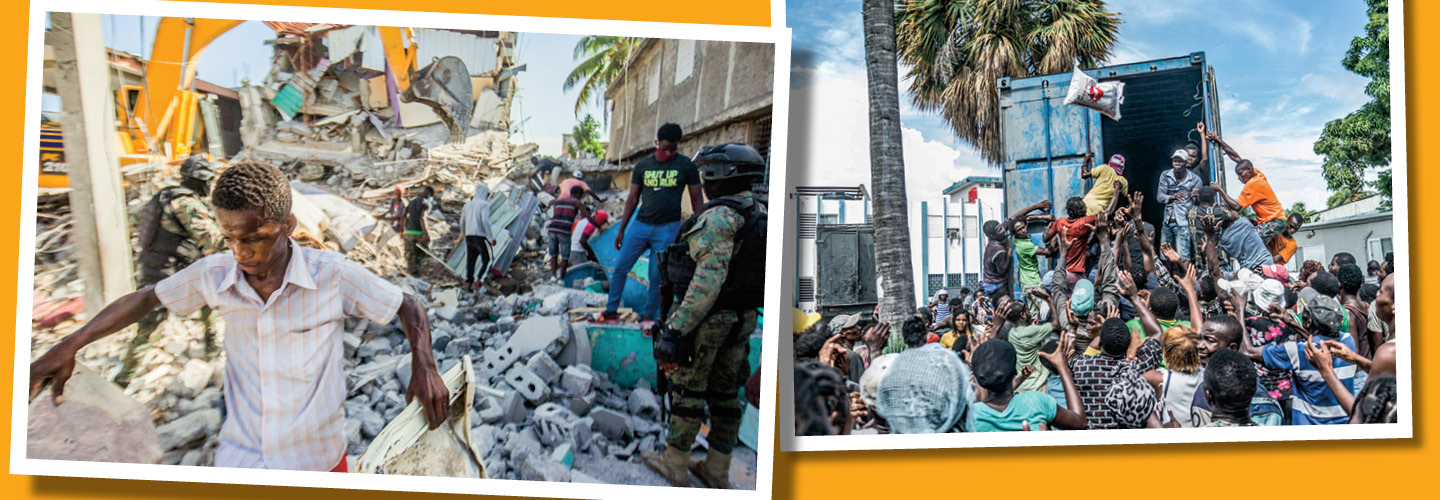Alejandro Cegarra/Bloomberg via Getty Images
President Jovenel Moïse, who was killed by assassins in July
For the desperately poor island nation of Haiti, it’s been one catastrophe after another.
In July, assassins killed the country’s president, creating a power vacuum amid an already failing government. In August, a powerful earthquake struck Haiti, leaving more than 2,000 people dead and thousands more injured. Then a tropical storm hit days later, flooding the country and slowing rescue efforts.
Now, with Haiti still reeling from those disasters, violent gangs that control about half the capital, Port-au-Prince, have seized the country’s ports and are blocking critical shipments of fuel. That has left hospitals on the verge of shutting down because they can’t run their generators. Cellphone towers have lost power, leaving vast swaths of the country isolated. And every day, an acute food shortage grows worse. Of Haiti’s 11 million people, 4.4 million need food assistance, according to the United Nations.
For the poor island nation of Haiti, it’s been one setback after another.
In July, assassins killed the country’s president. His death created a new crisis for an already failing government. Then a powerful earthquake struck Haiti in August. The disaster left more than 2,000 people dead and thousands more injured. Things got even worse when a tropical storm hit days later. The heavy rain flooded the country and slowed rescue efforts.
Haiti is still reeling from those tragedies, and there seems to be no end in sight. Violent gangs now control about half the capital, Port-au-Prince. They’ve taken over the country’s ports and are blocking critical shipments of fuel. That’s left hospitals to face the threat of shutting down because they can’t run their generators. Cellphone towers have lost power, leaving large parts of the country isolated. And every day, a severe food shortage grows worse. Of Haiti’s 11 million people, 4.4 million need food donations, according to the United Nations.

